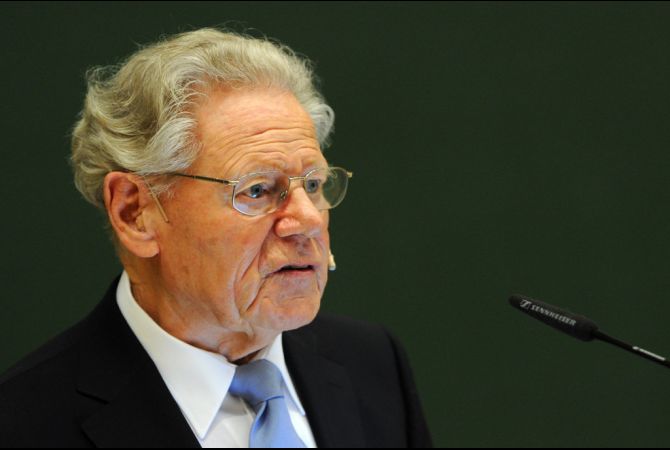Hans Kung, Influential Catholic Dissident, Confronts His Own Mortality
Jason Berry
In November 2012, on assignment for GlobalPost and National Catholic Reporter, I traveled to the University of Tubingen in Germany to interview Professor Hans Kung about the Vatican investigation of the main leadership group of American nuns. Kung, along with Benedict XVI (Joseph Ratzinger), are the most renowned Catholic theologians of the last half-century. Their conflicts, which date back several decades, mirror a divided church. In the early 1960s, when the shy, bookish Ratzinger taught at Tubingen, he had no driver’s license, and bicycled up steep hills of the medieval town. Kung drove a convertible and sometimes gave him rides. Both priests were liberal advisors at the reform-driven Second Vatican Council (1962-65). In 1968, when student protestors disrupted Ratzinger’s class, he began a steady move to the right. In 1979, as a Vatican cardinal, he revoked Kung’s license to teach theology for challenging papal infallibility. Kung, with tenure, shifted his teaching focus but escalated his criticism of a monarchical papacy; he accused John Paul of reducing bishops to yes-men, undercutting Vatican II reforms. Later, he called Ratzinger “the Grand Inquisitor” after the cardinal who scorns Jesus, while persecuting heretics in The Brothers Karamazov. With a ceaseless tide of books, speeches and interviews, Kung became an international figure, and as founder of Global Ethic Foundation, has drawn international leaders into dialogue on ethical norms for peaceful world development. Kung had announced his retirement when we met. At 85, seated by a window, framed in blue twilight, he called the crackdown on nuns “a new Inquisition” under Benedict. “You cannot deny that Joseph Ratzinger has faith. But he is absolutely against freedom. He wants obedience.” What changes in 13 months! After a butler leaked his correspondence to a journalist, a beleaguered Benedict, swamped by scandals, became the first pope to resign in 600 years. Vatican control of nuns is in question. The papal delegate, Archbishop Peter Sartain of Seattle, and Leadership Conference of Women Religious, are in a holding pattern under Pope Francis. The new pope (Time Magazine’s Man of the Year), is restoring the Vatican II agenda. He sent Kung a note of thanks for a book the theologian sent him on church reform, and signed it, “Fraternamente, Francesco” — Fraternally, Francis. In the coldest of ironies, as the arc of history seems to be bending his way, Kung has announced that he has Parkinson’s disease and joined a Swiss organization that assists in suicide for the terminally ill. As a native of Switzerland, which allows voluntary euthanasia for the terminally ill (Germany does not) Kung was able to join the Swiss group Exit International. According to its website: “Swiss law states that the ‘permissibility of altruistic assisted suicide cannot be overridden by a duty to save life.’ This safeguards those assisting in the suicide, as long as the motivation is altruistic." A Reuters dispatch quotes from the newly published third volume of his memoir, in German: “I do not want to live on as a shadow of myself.” I remember Kung’s stiffened walk that November evening, his polite gesture in taking my overcoat from the hanger and holding it for me to extend arms into sleeves, in the doorway, as the cab arrived. With cities the world over lighting up for Christmas this month, I wondered how a theologian of such energy could face his final chapter. I sent an email asking for a telephone interview. He replied in 48 hours, setting a time, asking that I “edit very carefully.” Meanwhile, I called Rev. Charles Curran, a moral theologian whose teaching license Cardinal Ratzinger revoked in the 1980s for opposing the Vatican stance on birth control. Curran left Catholic University of America; as University Professor of Human Values at Southern Methodist University in Dallas, Curran is a prolific writer on moral issues. “Don’t we all have to live with our diminishments as we get older?” Curran remarked. “Isn’t that what life is all about?” Curran said he “could never back” euthanasia, or mercy killing, which is illegal in America and many countries, “because of the dangers that might arise if we accepted it. If you can do it when you are terminally ill, why cannot you do it even before.
|
.
Any original material on these pages is copyright © BishopAccountability.org 2004. Reproduce freely with attribution.
